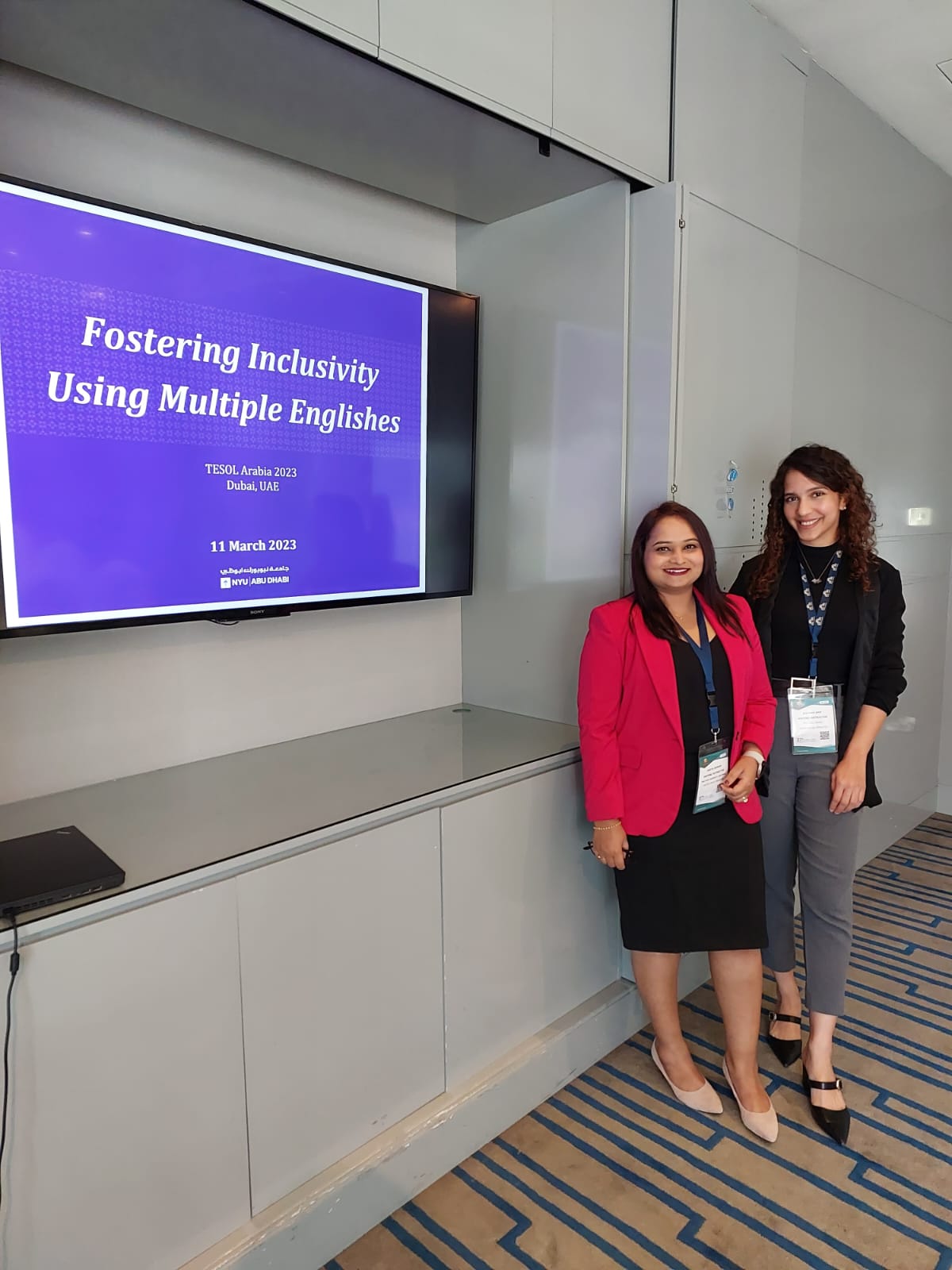Perceptions and Positions of Post-Colonial Englishes
Overview
The Perceptions and Positions of Postcolonial Englishes explores the perceptions, positions, placement, acceptability, influence and impact of Postcolonial Englishes. One of the major aims of the project is to give agency, legitimacy and space to diverse student/speaker voices in spoken and written expression. The project hopes to set up conversations around organizing collaborative focus group sessions where we invite various stakeholders e.g. students, academics, journalists, content creators, speakers and writers of varieties of Englishes. We aim to establish ourselves as the archival wing of the research kitchen, pulling together a series of podcasts that will spark further conversations on methods to decentralise the curriculum to make it more inclusive.
Project Researchers
Aieshah Arif
Neelam Hanif
Sweta Kumari

Event Highlights
Research and Conference Highlight
Writing Instructors Aieshah Arif and Sweta Kumari ran a presentation at TESOL Arabia 2023 conference in Dubai on March 10-12, as part of their goal of sharing knowledge from their research and making the information accessible. Their presentation on “Fostering Inclusivity using Multiple Englishes” was well-received and kickstarted conversations and connections with regional and global contacts. Please find the summary of the presentation below:
The global spread of English has resulted in the emergence of a range of postcolonial varieties of the language around the world. Students and teachers in the Middle East in particular bring a wide variety of linguistic contexts to their learning and teaching practices. Yet there remains a dominant linguistic and mental model in teaching academic English, based on commonly perceived “native” Englishes, that restricts inclusivity, innovation and effective language learning. This dominant hierarchy also affects how learners of the English language perceive themselves, and are perceived by others. Utilising the framework of World Englishes by Braj B. Kachru (1982), presenters will explore the limitations of solely using these “standard” varieties of English in language instruction. From facilitating conversations in class, to tailoring assignments and assessment rubrics, participants will also both learn and share theoretical and practical methods to create space for diverse backgrounds and varieties of Englishes in order to foster inclusivity in the teaching and learning of the English language.
Please reach out to Sweta (sk7335@nyu.edu), Aieshah (aa7756@nyu.edu) and Neelam Hanif (nh59@nyu.edu) for more information on the project and/or for collaborations.

